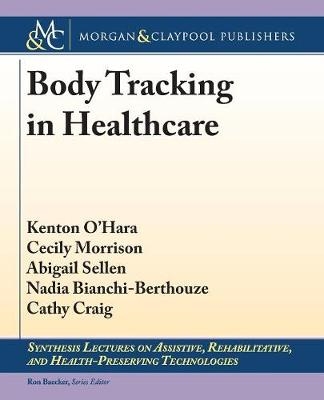
Body Tracking in Healthcare
Seiten
2016
Morgan and Claypool Life Sciences (Verlag)
978-1-62705-456-0 (ISBN)
Morgan and Claypool Life Sciences (Verlag)
978-1-62705-456-0 (ISBN)
Within the context of healthcare, there has been a long-standing interest in understanding the posture and movement of the human body. Gait analysis work over the years has looked to articulate the patterns and parameters of this movement both for a normal healthy body and in a range of movement-based disorders.
In recent years, these efforts to understand the moving body have been transformed by significant advances in sensing technologies and computational analysis techniques all offering new ways for the moving body to be tracked, measured, and interpreted. While much of this work has been largely research focused, as the field matures, we are seeing more shifts into clinical practice. As a consequence, there is an increasing need to understand these sensing technologies over and above the specific capabilities to track, measure, and infer patterns of movement in themselves. Rather, there is an imperative to understand how the material form of these technologies enables them also to be situated in everyday healthcare contexts and practices. There are significant mutually interdependent ties between the fundamental characteristics and assumptions of these technologies and the configurations of everyday collaborative practices that are possible them. Our attention then must look to social, clinical, and technical relations pertaining to these various body technologies that may play out in particular ways across a range of different healthcare contexts and stakeholders.
Our aim in this book is to explore these issues with key examples illustrating how social contexts of use relate to the properties and assumptions bound up in particular choices of body-tracking technology. We do this through a focus on three core application areas in healthcare—assessment, rehabilitation, and surgical interaction—and recent efforts to apply body-tracking technologies to them.
In recent years, these efforts to understand the moving body have been transformed by significant advances in sensing technologies and computational analysis techniques all offering new ways for the moving body to be tracked, measured, and interpreted. While much of this work has been largely research focused, as the field matures, we are seeing more shifts into clinical practice. As a consequence, there is an increasing need to understand these sensing technologies over and above the specific capabilities to track, measure, and infer patterns of movement in themselves. Rather, there is an imperative to understand how the material form of these technologies enables them also to be situated in everyday healthcare contexts and practices. There are significant mutually interdependent ties between the fundamental characteristics and assumptions of these technologies and the configurations of everyday collaborative practices that are possible them. Our attention then must look to social, clinical, and technical relations pertaining to these various body technologies that may play out in particular ways across a range of different healthcare contexts and stakeholders.
Our aim in this book is to explore these issues with key examples illustrating how social contexts of use relate to the properties and assumptions bound up in particular choices of body-tracking technology. We do this through a focus on three core application areas in healthcare—assessment, rehabilitation, and surgical interaction—and recent efforts to apply body-tracking technologies to them.
Kenton O'Hara, Microsoft Research, Cambridge, UK. Cecily Morrison, Microsoft Research, Cambridge, UK. Abigail Sellen, Microsoft Research, Cambridge, UK. Nadia Bianchi-Berthouze, University College London, UK. Cathy Craig, Queens University, Belfast, UK.
Dedication
List of Figures
Introduction
Clinical Assessment of Motor Disability
Self-Directed Rehabilitation and Care
Interactions for Clinicians
Conclusions
Bibliography
Author Biographies
| Erscheinungsdatum | 07.04.2016 |
|---|---|
| Reihe/Serie | Synthesis Lectures on Assistive, Rehabilitative, and Health-Preserving Technologies |
| Verlagsort | San Rafael, CA |
| Sprache | englisch |
| Maße | 191 x 235 mm |
| Gewicht | 333 g |
| Themenwelt | Informatik ► Software Entwicklung ► User Interfaces (HCI) |
| Informatik ► Weitere Themen ► Bioinformatik | |
| Medizin / Pharmazie ► Medizinische Fachgebiete ► Orthopädie | |
| Medizin / Pharmazie ► Physiotherapie / Ergotherapie ► Rehabilitation | |
| ISBN-10 | 1-62705-456-1 / 1627054561 |
| ISBN-13 | 978-1-62705-456-0 / 9781627054560 |
| Zustand | Neuware |
| Haben Sie eine Frage zum Produkt? |
Mehr entdecken
aus dem Bereich
aus dem Bereich
Aus- und Weiterbildung nach iSAQB-Standard zum Certified Professional …
Buch | Hardcover (2023)
dpunkt Verlag
34,90 €
Lean UX und Design Thinking: Teambasierte Entwicklung …
Buch | Hardcover (2022)
dpunkt (Verlag)
34,90 €
Wissensverarbeitung - Neuronale Netze
Buch | Hardcover (2023)
Carl Hanser (Verlag)
34,99 €


